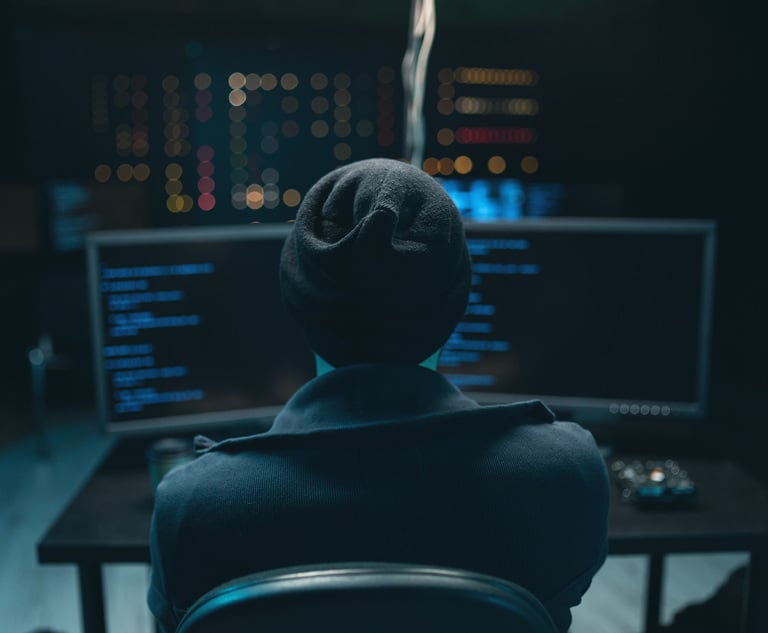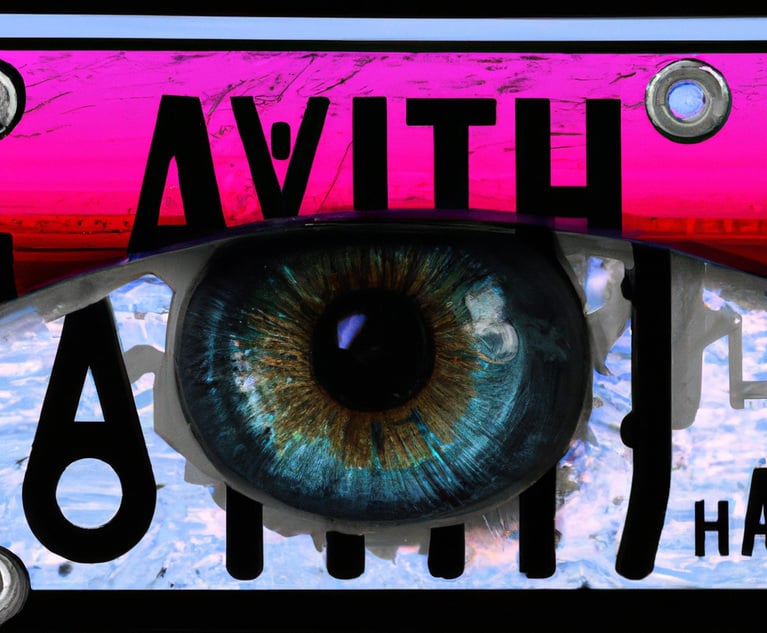'Things Just Couldn't Be the Same' After the 'Lynyrd Skynyrd' Spoliation Decision
Most lawyers know to advise their clients to preserve evidence in their “care, custody or control” relevant to pending or threatened litigation. But exactly how far does “control” go? Can a party be sanctioned for spoliation for failing to issue a legal hold notice to a third party who has no obligation to follow your legal hold instructions?
February 05, 2018 at 03:15 PM
8 minute read

Most lawyers know to advise their clients to preserve evidence in their “care, custody or control” relevant to pending or threatened litigation. But exactly how far does “control” go? Can a party be sanctioned for spoliation for failing to issue a legal hold notice to a third party who has no obligation to follow your legal hold instructions? A recent case, relating to the late, great rock band Lynyrd Skynyrd, answers that question in the affirmative, see Ronnie Van Zant v. Pyle, No. 17 Civ. 3360 (RWS) , 98 Fed. R. Serv.3d 719 (S.D.N.Y. 2017).
Rock music fans will recall the Lynyrd Skynyrd band, and its hit songs like “Freebird” and “Gimme Three Steps.” Fans may also recall that the band's lead singer and primary songwriter, Ronnie Van Zant, died in a tragic private plane crash in 1977. Other members of the band were also killed or critically injured in the crash. Following the crash, Van Zant's widow, other family members and some surviving members of the band entered into a “blood oath” never to perform again under the Lynyrd Skynyrd name. A commemorative tribute tour 10 years later resulted in a legal dispute which was resolved in 1988, by a consent order signed by multiple parties, including the band's former drummer, Artimus Pyle. The consent order provided that former band members could again perform under the Lynyrd Skynyrd name, if certain conditions were met, but signatories were permanently restrained and enjoined from exploiting the history of the Lynyrd Skynyrd band (including in movies or books) without the advance written approval of the other original band members and the Van Zant estate.
Fast forward to 2016 when Cleopatra Records and its filmmaking affiliate decided to make a movie based on the 1977 plane crash. Cleopatra contracted with screenwriter/director Jared Cohn to write and direct the film, and subsequently hired Pyle to consult and co-produce. Once they learned about plans for the film, other signatories to the 1988 consent order sent a “cease and desist” letter, and ultimately filed suit on May 5, 2017. The suit named Pyle and Cleopatra, but did not name Cohn as a defendant. Cleopatra's defense included arguing that Pyle's role was limited and that release of the movie should not be enjoined as a result of that limited involvement by Pyle.
Gimme These Texts, Gimme These Texts Mister
Throughout the writing of the film, Cohn frequently consulted with Pyle by telephone and by text messages. Plaintiffs demanded that the text messages from Cohn be produced, so that the extent of Pyle's influence on the film could be illuminated. However, Cohn had switched phone providers and cellphones in mid-May 2017, shortly after filming was completed and the suit was filed. The text messages on Cohn's old phone were not transferred or otherwise preserved. Plaintiffs urged the court to find that the failure to preserve the text messages constituted spoliation of evidence and asked the court to draw an adverse inference against Cleopatra.
Senior Judge Robert Sweet signed his detailed and well-written opinion on Aug. 23, 2017, less than three months before his 96th birthday. He granted the plaintiffs' request for an adverse inference. Even though Cleopatra did not have any legal right to force Cohn to preserve the messages, Judge Sweet held that the text messages were, “practically speaking,” under Cleopatra's control because Cohn had been working closely with Cleopatra for over a year, and stood to gain financially if Cleopatra prevailed in the litigation. Sweet's reliance on the “practical control” test was in line with established law in the Southern District of New York, see GenOn Mid-Atlantic v. Stone & Webster, 282 F.R.D. 346 (S.D.N.Y. 2012) ( there was “little doubt that [plaintiff's litigation consultant] would have complied with a timely request by the [plaintiff] to preserve its information.”); In re NTL Securities Litigation, 244 F.R.D. 179 (S.D.N.Y. 2007) (“documents are considered to be under a party's control when that party has the right, authority, or practical ability to obtain the documents from a nonparty to the action.”).
Sweet Home Alabama?
Is this same “practical ability” test applied outside of the Southern District of New York? The answer is mixed. If you are in Alabama—or anywhere in the U.S. Court of Appeals for the 11th Circuit—you could cite Searock v. Stripling, 736 F.2d 650 (11th Cir.1984), for the proposition that control means “the legal right to obtain documents.” Courts in other jurisdictions have split with regard to the construction of “control.” Compare Ricks v. Wood, No. 13-00264-TLM Chapter 11, 2015 BL 202107 (Bankr. D. Idaho June 24, 2015); Hill v. Asset Acceptance, 2014 BL 186028 (S.D. Cal. Jul 3, 2014); and Tank Connection v. Haight, No. 13-cv-1392-JTM-TJJ, 2015 BL 177306 (D. Kan. June 4, 2015) (applying “legal right” test) with Benisek v. Lamone, 320 F.R.D. 32 (D. Md. 2017); Duarte v. St. Paul Fire & Marine Insurance, No. EP-14-CV-305-KC, 2015 BL 395112 (W.D. Tex. Sept. 25, 2015); and SRAM, v. Hayes Bicycle Group, No. 12 C 3629, 2013 BL 341173 (N.D. Ill. Dec. 10, 2013) (applying “practical ability” test). No case, however, had gone as far as the Van Zant case in finding “control” in the absence of any corporate affiliation, employment or agency relationship.
One could argue that there is a logical gap between a nonparty having a close relationship with a litigant, or even a financial interest in the outcome of litigation, and necessarily complying with a voluntary request to preserve or produce documents absent legal compulsion. Why should the nonparty shoulder that burden absent knowing the documents will be helpful to its allies in the litigation (or worse, if the nonparty knows or suspects that the documents will be unhelpful)?
Perhaps that, and a sense of “frontier justice,” is part of what drove the decision in this case and other cases that have looked at nonparty interests in litigation outcomes as a factor in determining the scope of “control,” see, e.g., Costa v. Kerzner International Resorts, 277 F.R.D. 468 (S.D. Fla. 2011); Steele Software Systems v. DataQuick Information Systems, 237 F.R.D. 561 (D. Md. 2006). It is not really that the nonparty would volunteer to preserve or produce the information if asked, but that a nonparty's decision about whether to do so could be based on the content of the documents. Other factors cited in Judge Sweet's opinion included the failure of defendant Pyle to produce any texts or other documents, suspicious timing of Cohn's cellphone upgrade (shortly following filing of the litigation), and the fact that Cohn managed to copy over his pictures from his old phone, but not the texts. While the defendants essentially took the position that Cohn and Cleopatra were free as a bird not to arrange preservation of those messages, Sweet essentially held Lord knows they're to blame.
I Wish You'd Let Me Ask One Favor From You
There are good reasons for courts to show restraint in extending the concept of control beyond legal control and into territory where they have to start speculating about “close relationships” or “shared interests in litigation outcomes.” Implementing legal holds can be a major burden on litigants, and a challenge to properly scope, even when the holds are limited to litigants' employees and agents. There are other mechanisms available, including subpoenas, for requesting parties to obtain evidence from nonlitigants, without getting on the slippery slope of how far a “practical ability” test extends the preservation obligations of parties.
We have not, as of yet, heard the last of the Van Zant case. The case is now on appeal to the Second Circuit Court of Appeals, and a number of leading news media, movie studios and television networks have submitted amicus briefs challenging the injunction decision on the basis that it is an unconstitutional prior restraint of free speech. There is also a strong argument that the court's imposition of an adverse inference sanction was improper under the Federal Rules, in the absence of any finding that “a party acted with the intent to deprive another party of the information's use in the litigation.”
Unless or until there is a reversal on the control issue, however, you will be well advised to counsel your clients to extend their circulation of preservation notices, not only to their own employees and agents who might have relevant information, but also to any third parties with which they may have close relationships. Only then will you and they be able to say “now we all did what we could do.”
David R. Cohen is a partner in the global law firm, Reed Smith, where he leads the firm's records and e-discovery (RED) practice group.
Todd R. Fairman is an e-discovery attorney in the firm's RED group.
This content has been archived. It is available through our partners, LexisNexis® and Bloomberg Law.
To view this content, please continue to their sites.
Not a Lexis Subscriber?
Subscribe Now
Not a Bloomberg Law Subscriber?
Subscribe Now
NOT FOR REPRINT
© 2025 ALM Global, LLC, All Rights Reserved. Request academic re-use from www.copyright.com. All other uses, submit a request to [email protected]. For more information visit Asset & Logo Licensing.
You Might Like
View All
Settlement Dilemma in Data Breach Actions: Risk, Strategy, and Legal Insights
5 minute read
Bristol-Myers Squibb, Cencora Face Data Breach Class Action

In a First, a Geolocation Privacy Class Action Will Go to a Jury

Ballard Spahr Data Privacy Co-Chair Jumps to Equivalent Role at Blank Rome
5 minute readTrending Stories
Who Got The Work
J. Brugh Lower of Gibbons has entered an appearance for industrial equipment supplier Devco Corporation in a pending trademark infringement lawsuit. The suit, accusing the defendant of selling knock-off Graco products, was filed Dec. 18 in New Jersey District Court by Rivkin Radler on behalf of Graco Inc. and Graco Minnesota. The case, assigned to U.S. District Judge Zahid N. Quraishi, is 3:24-cv-11294, Graco Inc. et al v. Devco Corporation.
Who Got The Work
Rebecca Maller-Stein and Kent A. Yalowitz of Arnold & Porter Kaye Scholer have entered their appearances for Hanaco Venture Capital and its executives, Lior Prosor and David Frankel, in a pending securities lawsuit. The action, filed on Dec. 24 in New York Southern District Court by Zell, Aron & Co. on behalf of Goldeneye Advisors, accuses the defendants of negligently and fraudulently managing the plaintiff's $1 million investment. The case, assigned to U.S. District Judge Vernon S. Broderick, is 1:24-cv-09918, Goldeneye Advisors, LLC v. Hanaco Venture Capital, Ltd. et al.
Who Got The Work
Attorneys from A&O Shearman has stepped in as defense counsel for Toronto-Dominion Bank and other defendants in a pending securities class action. The suit, filed Dec. 11 in New York Southern District Court by Bleichmar Fonti & Auld, accuses the defendants of concealing the bank's 'pervasive' deficiencies in regards to its compliance with the Bank Secrecy Act and the quality of its anti-money laundering controls. The case, assigned to U.S. District Judge Arun Subramanian, is 1:24-cv-09445, Gonzalez v. The Toronto-Dominion Bank et al.
Who Got The Work
Crown Castle International, a Pennsylvania company providing shared communications infrastructure, has turned to Luke D. Wolf of Gordon Rees Scully Mansukhani to fend off a pending breach-of-contract lawsuit. The court action, filed Nov. 25 in Michigan Eastern District Court by Hooper Hathaway PC on behalf of The Town Residences LLC, accuses Crown Castle of failing to transfer approximately $30,000 in utility payments from T-Mobile in breach of a roof-top lease and assignment agreement. The case, assigned to U.S. District Judge Susan K. Declercq, is 2:24-cv-13131, The Town Residences LLC v. T-Mobile US, Inc. et al.
Who Got The Work
Wilfred P. Coronato and Daniel M. Schwartz of McCarter & English have stepped in as defense counsel to Electrolux Home Products Inc. in a pending product liability lawsuit. The court action, filed Nov. 26 in New York Eastern District Court by Poulos Lopiccolo PC and Nagel Rice LLP on behalf of David Stern, alleges that the defendant's refrigerators’ drawers and shelving repeatedly break and fall apart within months after purchase. The case, assigned to U.S. District Judge Joan M. Azrack, is 2:24-cv-08204, Stern v. Electrolux Home Products, Inc.
Featured Firms
Law Offices of Gary Martin Hays & Associates, P.C.
(470) 294-1674
Law Offices of Mark E. Salomone
(857) 444-6468
Smith & Hassler
(713) 739-1250





